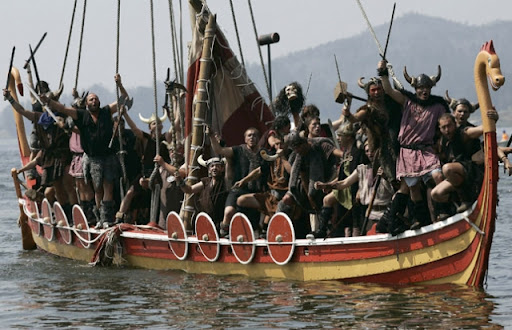The Vikings, hailing from the rugged landscapes of Norway, embarked on epic seafaring adventures that left an indelible mark on history. Their audacious raids, intrepid explorations, and unique culture continue to fascinate and inspire people worldwide. This article provides a detailed exploration of the history of Norway Vikings, delving into their origins, accomplishments, and enduring legacy.
Origins and Early History
The Rise of the Vikings
The Viking Age, spanning the 8th to 11th centuries, marked a transformative period in Norwegian history. During this time, a combination of factors, including population growth, technological advancements, and political instability, fueled the rise of the Vikings. They emerged as fierce warriors and skilled navigators, leaving their homeland in search of wealth, land, and adventure.
Viking Society and Culture
Viking society was characterized by its decentralized nature and a strong sense of community. They lived in small, isolated settlements along the coast and fjords, relying on farming, fishing, and raiding for sustenance. Their culture emphasized honor, bravery, and loyalty, which were often expressed through storytelling and sagas that celebrated their exploits.
Viking Conquests and Explorations
Raids and Plunder
The Vikings were renowned for their daring raids on coastal settlements throughout Europe. They targeted wealthy monasteries and towns, seeking plunder and slaves. Their swift ships and brutal tactics spread fear and terror wherever they went. The Vikings’ raids extended from the British Isles to the Mediterranean Sea, leaving a lasting impact on the history of these regions.
Exploration and Discovery
Beyond their raids, the Vikings were also accomplished explorers. They sailed west across the Atlantic Ocean, discovering and settling in Iceland, Greenland, and even reaching the shores of North America. Their voyages pushed the boundaries of geographical knowledge and laid the groundwork for future European exploration.
The Viking Legacy
Conversion to Christianity
In the 10th century, Norway began to adopt Christianity. This transition from pagan beliefs to a new religion had a profound impact on Viking society. It led to the establishment of churches and the decline of traditional Viking practices. However, many elements of Viking culture, such as their storytelling and seafaring traditions, continued to influence Norwegian society.
End of the Viking Age
The Viking Age gradually came to an end in the 11th century. A combination of factors, including political consolidation, the spread of Christianity, and the rise of new maritime powers, contributed to the decline of Viking raids and explorations. Nevertheless, the legacy of the Vikings remained strong, shaping the cultural, linguistic, and historical heritage of Norway and beyond.
Modern-Day Norway and Viking Tourism
Preservation and Commemoration
Today, Norway takes great pride in its Viking heritage. Numerous historical sites, such as Viking burial mounds, shipwrecks, and reconstructed settlements, have been preserved and opened to the public. Museums, such as the Viking Ship Museum in Oslo, showcase the remarkable craftsmanship and seafaring skills of the Vikings.
Viking Festivals and Events
Throughout Norway, Viking festivals and events are held to celebrate the legacy of the Vikings. These gatherings feature traditional crafts demonstrations, reenactments of battles, and immersive cultural experiences. Visitors can experience the spirit of the Vikings firsthand and gain a deeper understanding of their history.
Transportation and Accommodation Options
Norway is easily accessible by air, with several international airports located in major cities. Once in Norway, a comprehensive transportation system, including trains, buses, and ferries, provides convenient connections to Viking historical sites and museums. For accommodation, a wide range of options is available, from budget-friendly hostels to luxurious hotels, ensuring a comfortable and unforgettable travel experience.
Conclusion
The history of Norway Vikings is a captivating tale of adventure, conquest, and cultural transformation. From their humble origins as coastal farmers and fishermen to their audacious raids and distant explorations, the Vikings left an enduring legacy that continues to inspire and intrigue people today. By exploring the preserved historical sites, participating in Viking festivals, and delving into their rich culture, visitors to Norway can gain a deeper appreciation for the Vikings’ remarkable achievements and the profound impact they have had on the world.
